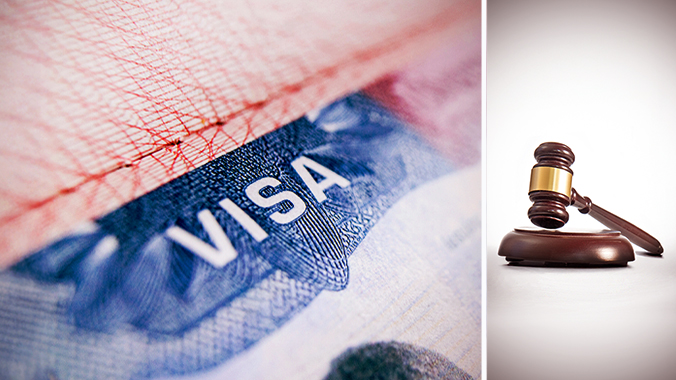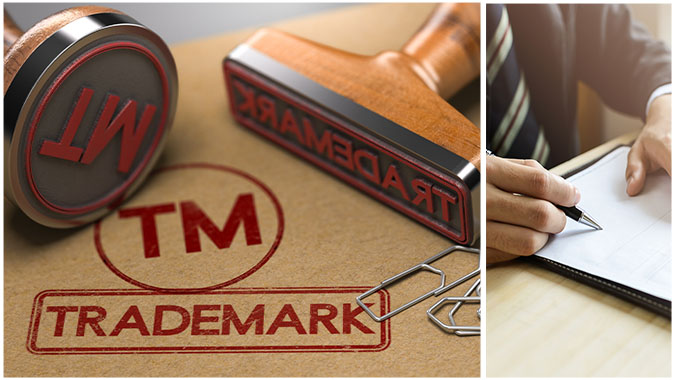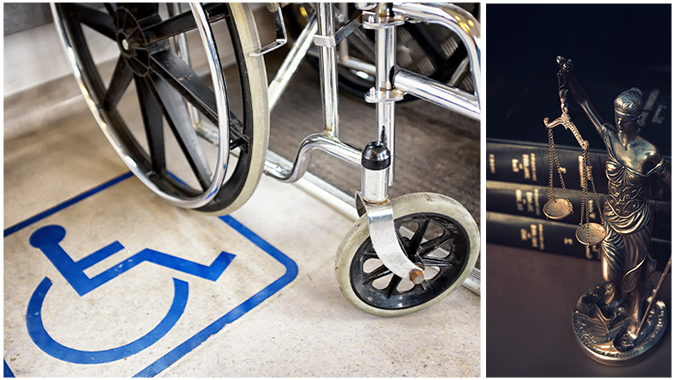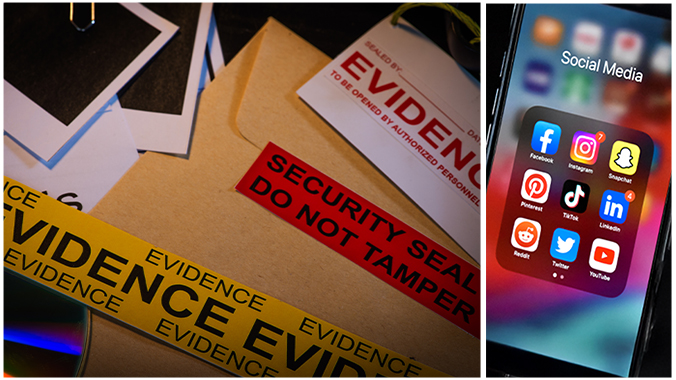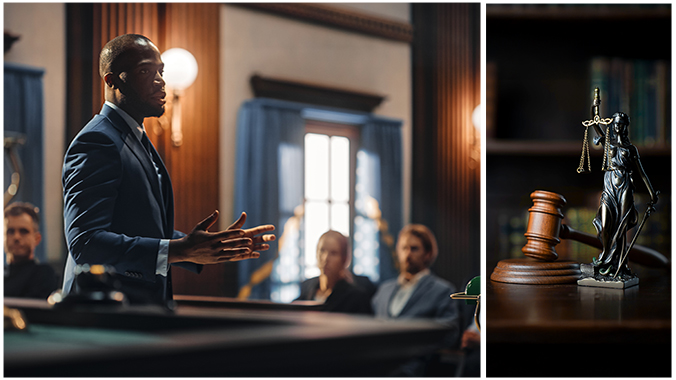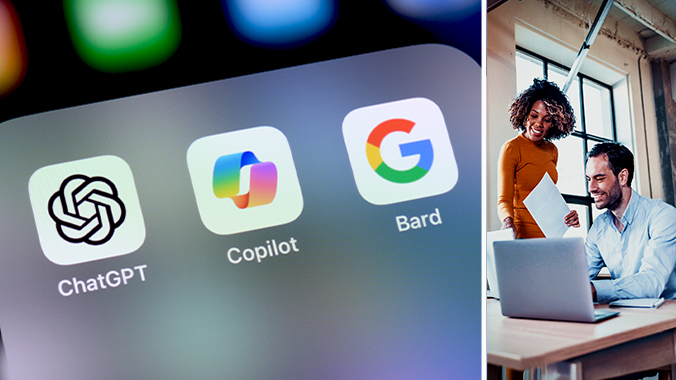Creating a Trial Notebook: From A – Z (Including 1hr of Ethics)



5 hour CLE
Tuition: $295.00
Get this course, plus over 1,000+ of live webinars.
Learn More
Training 5 or more people?
Sign-up for a law firm subscription plan and each attorney in the firm receives free access to all CLE Programs
Program Summary
Session I - Understanding the Trial Notebook – Kelly Hanker
Preparing your trial binder may feel like an arduous task but having a system of organization that allows you to easily access information during the heat of trial is indispensable. Additionally, the mere act of preparing your trial binder at the outset and throughout your case can also be tremendously beneficial in planning your presentation for trial.
Key topics to be discussed:
- The importance of a trial notebook
- How to organize a trial notebook
- Using your trial notebook structure and organization to plan for and work up your case
Session II - Document Management – Lisa Szyc
In this session we will be focusing on document management and trial exhibits. We'll explore the incorporation of digital documents, ESI protocols, and ensuring admissibility. Dive into practical considerations like using jump drives for exhibits, compatibility with courtroom technology, and assessing effectiveness. Don't miss this opportunity to streamline your legal practice and enhance your courtroom presentation skills.
Key topics to be discussed:
- Incorporating digital documents
- Trial exhibits in the binder
- Ensuring admissibility
- Will it be effective?
Session III - Strategies for Trial Preparation: Building jury selection, discovery, and witness folders – Jean Marie Downing
This session aims to provide legal professionals with practical guidance on enhancing trial preparation through effective organization and management of key trial materials. Participants will learn strategies for "Building the Jury Selection Notebook," which involves gathering pertinent information on potential jurors to inform strategic decisions during selection. Additionally, the webinar will cover "Creating the Discovery Notebooks," focusing on organizing evidence and documents obtained during the discovery process for easy access and utilization during trial. Lastly, attendees will gain insights into "Developing Witness Folders," which involves assembling comprehensive folders for each witness containing relevant materials to aid in witness preparation and presentation. By mastering these techniques, participants can improve trial readiness, streamline proceedings, and enhance their ability to present a compelling case in court.
Key topics to be discussed:
- Building the jury selection notebook
- Creating the discovery notebooks
- Developing witness folders
Session IV - Ethical Considerations in Trial Notebook Creation - Lisa Szyc
In this session we will focus on attorney-client privilege and confidentiality in trial preparation, we will explore the importance of attorney-client privilege in trial notebooks, learn best practices for maintaining confidentiality throughout trial preparation, and understand the scope and limitations of the privilege. Gain practical insights on identifying and protecting privileged information within trial notebooks. Elevate your practice with essential knowledge and strategies in this concise and impactful session.
Key topics to be discussed:
- Attorney-Client Privilege
- Confidentiality in Trial Notebook Creation
- Duty to maintain client confidentiality throughout trial preparation
- Best practices for safeguarding sensitive information in trial notebooks
- Understanding the scope and limitations of attorney-client privilege
- Ensuring that privileged information is properly identified and protected within trial notebooks
![]() Closed-captioning available
Closed-captioning available
Speakers
 Kelly Hanker | Trial Lawyers for Justice, Hanker Law PC
Kelly Hanker | Trial Lawyers for Justice, Hanker Law PC
Kelly Hanker is a well-regarded plaintiff-side civil trial lawyer known for increasing the value of cases, including catastrophic and traumatic injury, employment law, medical malpractice, and sexual assault cases. Often referred to as the Empathy Lawyer, Kelly’s connection to her clients after sustaining a permanent disability in a car crash herself and being called to the Plaintiff’s side by her then trial attorney—now mentor and partner, Nick Rowley—is unmatched. Kelly is a nationally sought speaker and author on a variety of trial related topics. In addition to her own cases, Kelly also associates in as trial counsel around the country and consults on: trials; conducting the human story of your client; preparing your client for DMEs; preparing witnesses for deposition and trial; trial preparation; and assists in framing and developing the story of your case. Kelly has repeatedly been named a Super Lawyers Rising Star for Southern California, is a graduate of the prestigious Gerry Spence Method trial college, and has been honored by numerous organizations for her non-profit board service and philanthropic work, including by the Los Angeles Business Journal as a finalist for Philanthropist of the Year. She currently serves on: the Women in Law Committee for the Consumer Attorneys of Los Angeles (CAALA), as the Legislative Chair for the Consumer Attorneys of California’s (CAOC) Women’s Caucus; on the Racial Justice Committee for the California Employment Lawyers Association (CELA); on the Foundation Board of the Women Lawyers Association of Los Angeles (WLALA), and is a member of the Western Trial Lawyers Association (WTLA), Justice Headquarters (JHQ) and the American Association of Justice’s (AAJ) Technology & Science and Employment Rights Sections.
Kelly attended the University of Michigan-Ann Arbor, obtaining a Bachelor of Arts in the History of Art, and was awarded the Dean’s List distinction for academic excellence. She attended law school at the University of Iowa College of Law, where she served on the Journal of Corporation Law and won the award for Outstanding Student Writer. Kelly also received the Boyd Service Award with Highest Honors and became the Case Editor for the Philip C. Jessup International Law Moot Court Competition before obtaining her Juris Doctor in 2007. In addition, Ms. Hanker externed for Magistrate Judge John A. Jarvey in the Northern District of Iowa while in law school.
 Lisa M. Szyc | Backus Burden
Lisa M. Szyc | Backus Burden
I graduated with a B.A. in Political Science from the University of Nevada Las Vegas. I attended law school at North Carolina Central University School of Law. I was admitted to the Nevada bar in 2009. Over the years I have practiced in the areas of criminal defense, family law and general civil liability. I have extensive bench and jury trial experience and think being a litigator is one of the best parts of being a lawyer.
When I am not advocating for my clients I am actively involved in giving back to my community in various philanthropic endeavors.
 Jean Marie Downing | Downing Law
Jean Marie Downing | Downing Law
Ms. Downing represents criminal defendants in felony, misdemeanor, and violation of probation cases in both state and federal courts.
Ms. Downing is an experienced trial lawyer with over 50 jury trials including First Degree Murders as well as Federal Drug Conspiracies. Prior to entering private practice, Ms. Downing was a selected to serve as Federal Law Clerk in the United States District Court Middle District of Florida where she served as advisor and research attorney for The Honorable Ralph Nimmons.
Ms. Downing received her Juris Doctor magna cum laude (top 5%) from Stetson University College of Law in 1999, a Master of Science in Management from Troy University in 1993, and a Bachelor of Science in Criminal Justice from The Florida State University in 1991. Ms. Downing is a member of The Florida Bar (2000) and has been admitted to practice before the United States District Court Northern District of Florida (2000), the United States District Court Middle District of Florida (2001), and the United States Court of Appeals for the Eleventh Circuit (2001). Ms. Downing has also served as an Adjunct Professor at Florida Coastal School of Law in Jacksonville, Florida and Gulf Coast State College in Panama City, Florida.
Agenda
Session I – Understanding the Trial Notebook | 11:00am – 12:00pm
- The importance of a trial notebook
- How to organize a trial notebook
- Using your trial notebook structure and organization to plan for and work up your case
Break | 12:00pm – 12:10pm
Session II – Document Management | 12:10pm – 1:10pm
- Incorporating digital documents
- Trial exhibits in the binder
- Ensuring admissibility
- Will it be effective?
Break | 1:10pm – 1:20pm
Session III – Strategies for Trial Preparation: Building jury selection, discovery, and witness folders | 1:20pm – 3:30pm
- Building the jury selection notebook
- Creating the discovery notebooks (Part I)
Break | 2:20pm – 2:30pm
- Creating the discovery notebooks (Part II)
- Developing witness folders
Break | 3:30pm – 3:40pm
Session IV – Ethical Considerations in Trial Notebook Creation | 3:40pm – 4:40pm
- Attorney-Client Privilege
- Confidentiality in Trial Notebook Creation
- Duty to maintain client confidentiality throughout trial preparation
- Best practices for safeguarding sensitive information in trial notebooks
- Understanding the scope and limitations of attorney-client privilege
- Ensuring that privileged information is properly identified and protected within trial notebooks
Credits
Alaska
Approved for CLE Credits
4 General, 1 Ethics
Alabama
Approved for Self-Study Credits
4 General, 1 Ethics
Arkansas
Approved for CLE Credits
4 General, 1 Ethics
Arizona
Approved for CLE Credits
4 General, 1 Ethics
California
Approved for CLE Credits
4 General, 1 Ethics
Colorado
Approved for Self-Study Credits
3 General, 1 Ethics
Connecticut
Approved for CLE Credits
4 General, 1 Ethics
District of Columbia
No MCLE Required
4 General, 1 Ethics hours
Delaware
Approved for CLE Credits
4 General, 1 Ethics
Florida
Approved for CLE Credits
6 General, 1 Ethics
Georgia
Approved for CLE Credits
4 General, 1 Ethics
Hawaii
Approved for CLE Credits
4 General, 1 Ethics
Iowa
Approved for Self-Study Credits
4 General, 1 Ethics
Idaho
Pending CLE Approval
4 General, 1 Ethics
Illinois
Approved for Self-Study Credits
4 General, 1 Ethics
Indiana
Approved for Self-Study Credits
4 General, 1 Ethics
Kansas
Approved for Self-Study Credits
4 General, 1 Ethics
Kentucky
Pending CLE Approval
4 General, 1 Ethics
Louisiana
Approved for Self-Study Credits
4 General, 1 Ethics
Massachusetts
No MCLE Required
4 General, 1 Ethics
Maryland
No MCLE Required
4 General, 1 Ethics
Maine
Pending CLE Approval
4 General, 1 Ethics
Michigan
No MCLE Required
4 General, 1 Ethics
Minnesota
Approved for Self-Study Credits
4 General, 1 Ethics
Missouri
Approved for Self-Study Credits
4.8 General, 1.2 Ethics
Mississippi
Approved for CLE Credits
4 General, 1 Ethics
Montana
Pending CLE Approval
4 General, 1 Ethics
North Carolina
Approved for Self-Study Credits
4 General, 1 Ethics
Nebraska
Pending CLE Approval
4 General, 1 Ethics
New Hampshire
Approved for CLE Credits
4 General, 1 Ethics
New Jersey
Approved for CLE Credits
4.8 General, 1.2 Ethics
New Mexico
Approved for Self-Study Credits
4 General, 1 Ethics
Nevada
Approved for Self-Study Credits
4 General, 1 Ethics
New York
Approved for CLE Credits
4.8 General, 1.2 Ethics
Ohio
Approved for Self-Study Credits
4 General, 1 Ethics
Oklahoma
Approved for Self-Study Credits
5 General, 1 Ethics
Oregon
Approved for Self-Study Credits
4 General, 1 Ethics
Pennsylvania
Approved for Self-Study Credits
4 General, 1 Ethics
Rhode Island
Pending CLE Approval
5 General, 1 Ethics
South Carolina
Pending CLE Approval
4 General, 1 Ethics
South Dakota
No MCLE Required
4 General, 1 Ethics
Tennessee
Approved for Self-Study Credits
4 General, 1 Ethics
Texas
Approved for CLE Credits
4 General, 1 Ethics
Utah
Approved for Self-Study Credits
4 General, 1 Ethics
Virginia
Approved for Self-Study Credits
4 General, 1 Ethics
Vermont
Approved for CLE Credits
4 General, 1 Ethics
Washington
Approved via Attorney Submission
4 Law and Legal, 1 Ethics
Wisconsin
Approved for Self-Study Credits
5 General
West Virginia
Pending CLE Approval
4 General, 1 Ethics
Wyoming
Pending CLE Approval
4 General, 1 Ethics
#1 CLE Access Program
- Over 1,000 Live CLE Webinars each year
- All CLE webinars broadcasted in last 12 months
- Programs covering over 35 practice areas
- Hot topics & changes in the law
- All formats: Live, Replay, and On-demand
- Accreditation in every state
Access every CLE webinar,
every format, all year long!
myLawCLE All-Access Pass
only $395 yearly
Register Now
#1 CLE Access Program
- Over 1,000 Live CLE Webinars each year
- All CLE webinars broadcasted in last 12 months
- Programs covering over 35 practice areas
- Hot topics & changes in the law
- All formats: Live, Replay, and On-demand
- Accreditation in every state
Access every CLE webinar,
every format, all year long!
myLawCLE All-Access Pass
only $395 yearly
Preview
More CLE Webinars
Trending CLE Webinars


![The Litigator’s Guide to Evidentiary Objections: When to hold them and how to avoid mistakes (Including 1hr of Ethics) [2024 Edition]](https://mylawcle.com/wp-content/uploads/2024/03/The-Litigators-Guide-to-Evidentiary-Objections-When-to-hold-them-and-how-to-avoid-mistakes-Including-1hr-of-Ethics-2024-Edition_myLawCLE.jpg)







Upcoming CLE Webinars









